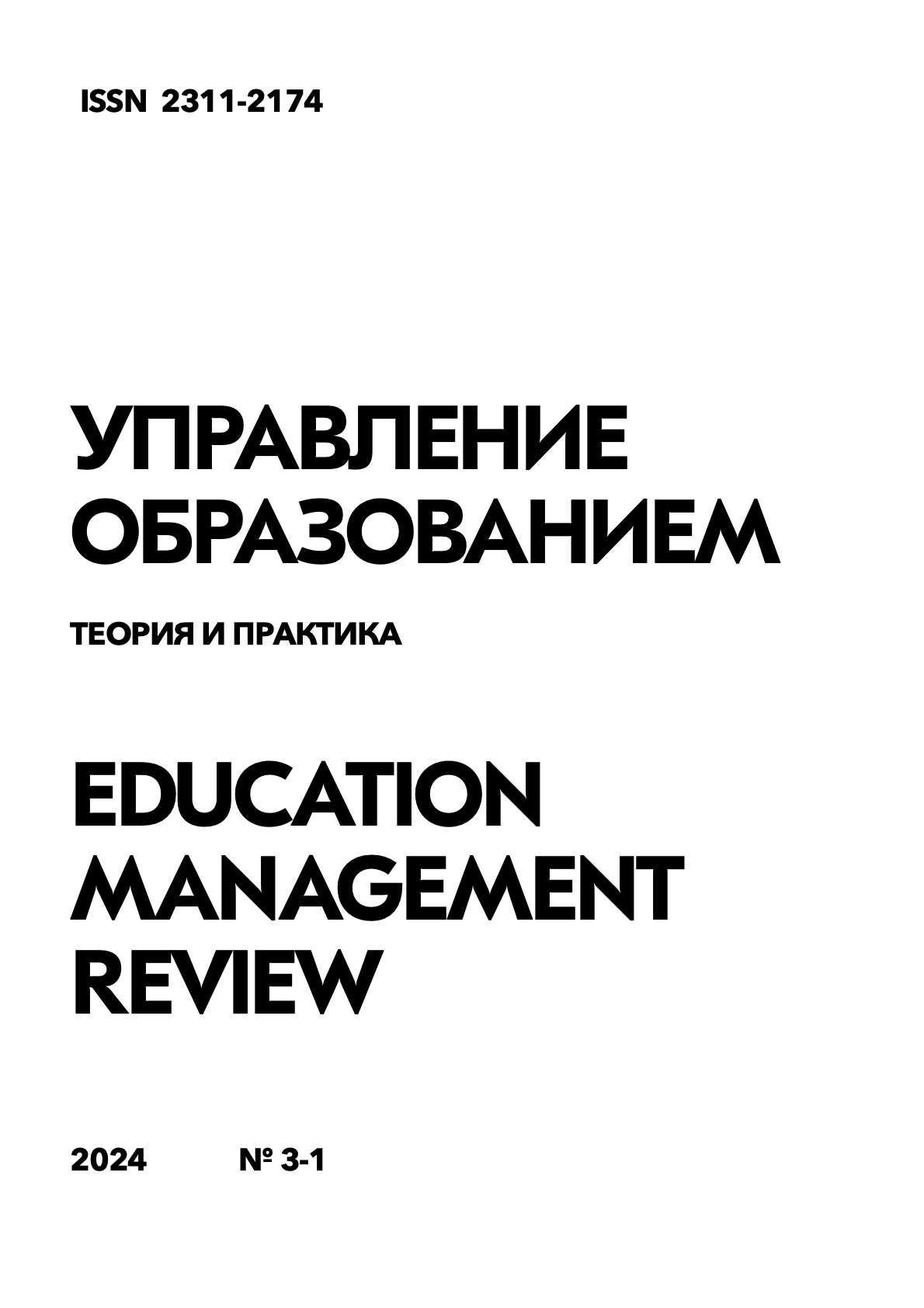Practical aspects of the use of simulation games and virtual reality for the training of specialists in the field of environmental management in universities
DOI:
https://doi.org/10.25726/w3666-1541-9926-oKeywords:
environmental management, higher education, simulation games, virtual reality, practice-oriented training, professional competencies, pedagogical modelAbstract
In the context of worsening environmental problems and the transition to sustainable development, the training of qualified specialists in the field of environmental management is of particular importance. Innovative educational technologies, such as simulation games and virtual reality (VR), open up new opportunities for students to develop practice-oriented competencies. The purpose of the study is to identify the specifics and substantiate the pedagogical potential of using simulation games and VR to train environmental managers in universities. The research is based on a set of complementary methods: theoretical analysis and generalization of scientific literature on the problem, expert survey (N=25), pedagogical modeling, experimental work with students (N=120). During the experiment, author's simulation games and VR cases developed on the basis of real environmental projects were used. Tests, case-meters, and evaluation scales were used to assess the effectiveness. The effectiveness of integrating simulation games and VR into the training of environmental managers is substantiated: the development of analytical and design skills (an increase of 35%), increased motivation for professional activity (84% of respondents). A pedagogical model for the use of simulation games and VR has been developed and tested, and its effectiveness has been proven. The organizational and pedagogical conditions for the effective use of these technologies are determined. Discussion. The obtained results contribute to the theory and methodology of professional environmental education, expand scientific understanding of the didactic potential of simulation games and VR. The proposed model and conditions can be used to modernize the training of environmental managers in universities. Research prospects are outlined: the development of adaptive VR environments integrating real environmental data.
References
Боронина Л.Н. Основы управления проектами: учебное пособие. Екатеринбург: Уральский федеральный университет, 2015. 112 с.
Браттон Б. The Terraforming. Под ред. А. Шпилев-Викстрем. М.: Strelka Press, 2020. 184 с.
Винья П., Кейси М. Машина правды. Блокчейн и будущее человечества. Пер. с англ. М.: Манн, Иванов и Фербер, 2018. 320 с.
Добряхина О.П. Специфика, проблемы и перспективы реализации мегапроекта «Большая Москва» // Московский экономический журнал. 2022. № 6. С. 711-723.
Равен Дж. Компетентность в современном обществе: выявление, развитие и реализация. М: Когито-Центр, 2002.
Танци В. Правительство и рынки. Меняющаяся экономическая роль государства. Пер. с англ. М.: Изд-во Института Гайдара; 2018. 584 c.
Трухин А.В. Об использовании виртуальных лабораторий в образовании. Открытое и дистанционное образование. 2005. № 3(19). рр. 70-72.
Wouters P., Van Oostendorp H. Overview of instructional techniques to facilitate learning and motivation of serious games. In Instructional techniques to facilitate learning and motivation of serious games Springer, Cham. 2017. pp. 1-16.
Susi M., Zheng X. Exploring the effectiveness of simulation games in promoting students' sustainability competencies // Journal of cleaner production. 2020. № 278, 123434.
Deci E.L., Ryan R.M. Self-determination theory. Eds. A.M. Van Lange, A.W. Kruglanski, E.T. Higgins. Handbook of theories of social psychology. NY: Sage Publications Ltd, 2012. pp. 416-436.
Barab S.A., Gresalfi M., Arici A. Why educators should care about games // Educational leadership. 2009. № 67(1). рр. 76-80.
Gütl C., Rizzardini R.H., Chang V., Morales M. Attrition in MOOC: Lessons learned from dropout students. In Learning technology for education in cloud // MOOC and Big Data. Springer, Cham, 2014. pp. 37-48.
Martín-Gutiérrez J., Mora C.E., Añorbe-Díaz B., González-Marrero A. Virtual technologies trends in education // EURASIA journal of mathematics, science and technology education. 2017.13(2). pp. 469- 486.
Gatti, L., Ulrich, M., Seele, P. Education for sustainable development through business simulation games: An exploratory study of sustainability gamification and its effects on students' learning outcomes // Journal of cleaner production. 2019. № 207. рр. 667-678.
Banerjee A., Niehaus P., Suri T. Universal basic income in the developing world // Annual review of economics. 2019. № 11. рр. 959-983.
Haug N., Geyrhofer L., Londei A., Dervic E., Desvars-Larrive A., Loreto V., Pinior B., Thurner S., Klimek P. Ranking the effectiveness of worldwide COVID-19 government interventions // Nature human behaviour. 2020. № 4(12). рр.1303-1312.
Ruppert E. The governmental topologies of database devices // Theory, culture & society. 2012. 3 29(4-5). рр. 116-136.
Vigna P., Casey M.J. The truth machine: The blockchain and the future of everything. NY: St. Martin's Press, 2018. 320 p.




